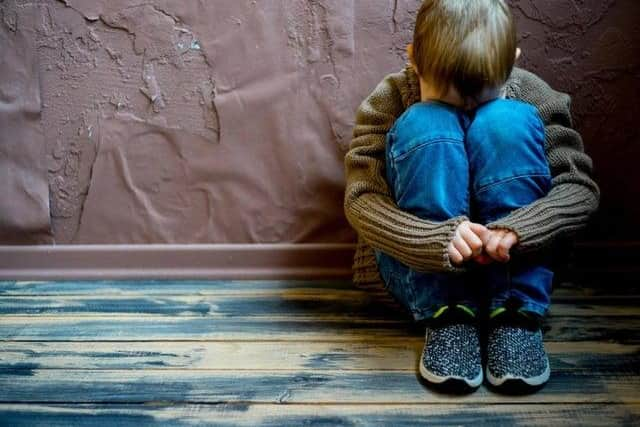Charity urges public to look out for these 13 signs of child neglect during lockdown
The independent charity warns there may be a 'tsunami' of hidden cases of children suffering neglect or abuse as schools and other spaces remain closed - and they are urging the public to look out for signs of young people suffering at the hands of parents or carers.
Child abuse calls to the NSPCC have risen by 20% since the lockdown. This, combined with news of a worryingly low number of ‘at risk’ children attending schools that remain open for children of key workers and the vulnerable, has prompted fears of much higher levels of abuse happening behind closed doors than normal.
Advertisement
Hide AdAdvertisement
Hide AdNeglect can include when a child is left hungry, their clothes are dirty or they are exposed to violence and danger in the home. Parents and carers have a legal duty to ensure the basics of child welfare are covered.


Ruth McNee, Crimestoppers’ regional manager, said: “A child or young person suffering neglect at this time must feel more isolated and alone than ever.
"Imagine being hungry, but there’s no food in the house, not knowing if you’ll be fed that day. Imagine not knowing when your parent or carer will come home, if at all, or if they’re drunk, high on drugs, abusive and angry.
“For some children and young people home is not a safe place.
"Abused children are at risk of being invisible during the pandemic.
“Maybe you are worried about a child’s welfare – a neighbour, friend or even relative - and fear they are suffering from neglect, but feel awkward and unsure about flagging it up to the authorities.
"Remember it’s better to be safe than sorry. Help is out there.
"If you suspect a child is being neglected but don’t want to give your details, you can always tell our charity whilst staying 100 per cent anonymous."
Here are 13 signs to look out for:
- Children appearing withdrawn, anxious or frightened.
- Hearing shouting, things being broken or hitting.
- Children crying for long periods of time.
Advertisement
Hide AdAdvertisement
Hide Ad- Children appearing guarded around a particular individual.
- Very young children left alone or being outdoors by themselves.
- Children looking dirty or not changing their clothes.
Other emotional and behavioural signs of child abuse are often presented in the following ways:
- Impaired capacity to enjoy life - abused children often appear sad, preoccupied and listless.
- Stress symptoms - for example: bed-wetting, tantrums, bizarre behaviour, eating problems etc.
- Low self-esteem - children who have been abused often think they must be worthless to deserve such treatment.
- A generally negative, uncooperative attitude.
- Hyper-vigilance - typified in the 'frozen watchfulness' expression
- Compulsivity - abused children sometimes compulsively carry out certain activities or rituals
Advertisement
Hide AdAdvertisement
Hide Ad- Pseudo-mature behaviour - a false appearance of independence or being excessively 'good' all the time, or offering indiscriminate affection to any adult who takes an interest.
If you think a child is being neglected or abused, you can fill out a secure anonymous online form on the Crimestoppers website.
Alternatively, call their UK Contact Centre, which is open 24/7, on freephone 0800 555 111.
A message from the Editor:
Thank you for reading this story on our website. While I have your attention, I also have an important request to make of you.
With the coronavirus lockdown having a major impact on many of our advertisers - and consequently the revenue we receive - we are more reliant than ever on you taking out a digital subscription.
Subscribe to scotsman.com and enjoy unlimited access to Scottish news and information online and on our app. With a digital subscription, you can read more than 5 articles, see fewer ads, enjoy faster load times, and get access to exclusive newsletters and content. Visit https://www.scotsman.com/subscriptions now to sign up.
Our journalism costs money and we rely on advertising, print and digital revenues to help to support them. By supporting us, we are able to support you in providing trusted, fact-checked content for this website.
Joy Yates
Editorial Director
Comments
Want to join the conversation? Please or to comment on this article.